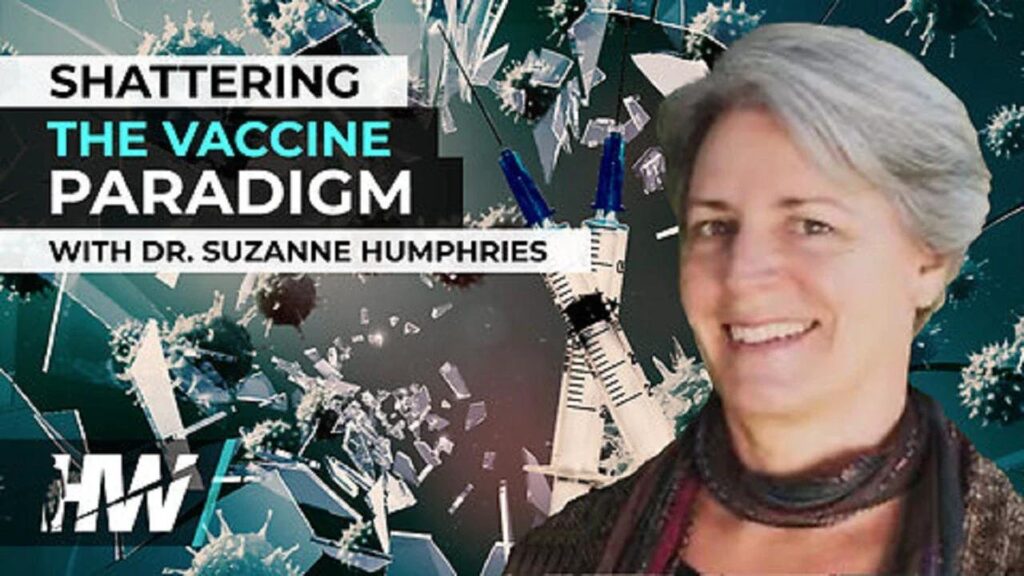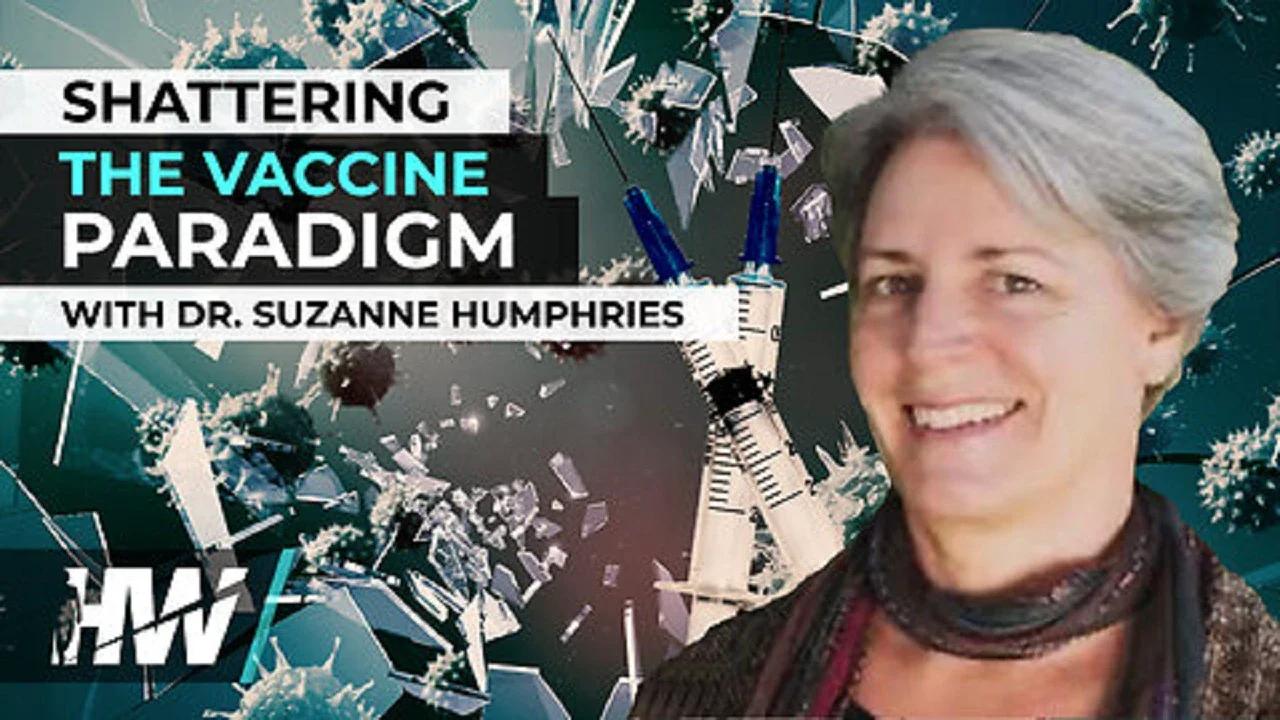
Dr. Suzanne Humphries and Vaccines: Examining the Controversy
The topic of vaccines is often met with passionate opinions and varying degrees of scientific understanding. Among the figures who have contributed to the discussion, often from a critical perspective, is Dr. Suzanne Humphries. This article aims to objectively examine Dr. Suzanne Humphries’ views on vaccines, the controversies surrounding her statements, and the broader context of vaccine safety and efficacy. It is essential to approach this subject with a balanced perspective, acknowledging both the concerns raised by figures like Dr. Humphries and the overwhelming scientific consensus supporting vaccination.
Who is Dr. Suzanne Humphries?
Dr. Suzanne Humphries is a former nephrologist (kidney specialist) who became known for her critical stance on vaccines. She has authored books and given numerous lectures expressing concerns about the safety and efficacy of vaccines, often questioning the established scientific narrative. Her background in medicine lends credibility to her claims in the eyes of some, while others in the medical community have strongly criticized her views as being based on misinformation and a misunderstanding of scientific evidence.
Dr. Suzanne Humphries’ Core Arguments Against Vaccines
Dr. Humphries’ arguments against vaccines typically center on several key points:
- Vaccine Ingredients: She often raises concerns about the ingredients in vaccines, such as aluminum adjuvants, formaldehyde, and thimerosal (although thimerosal is no longer used in most childhood vaccines). She argues that these substances are toxic and can cause harm, especially to infants and young children.
- Vaccine Schedule: Dr. Humphries questions the current vaccine schedule, arguing that it is too aggressive and overwhelms the immune system of infants. She suggests that spacing out vaccines or delaying them could reduce the risk of adverse reactions.
- Vaccine Efficacy: While not always denying the effectiveness of vaccines entirely, she often casts doubt on their long-term efficacy and questions whether they provide true immunity. She also suggests that natural immunity acquired through infection is superior to vaccine-induced immunity.
- Vaccine Safety: A core tenet of her argument is the lack of rigorous, independent safety studies on vaccines. She claims that vaccine manufacturers and regulatory agencies are biased and that true risks are often downplayed or ignored.
- The Role of Germ Theory: Some of Dr. Humphries’ views touch upon alternative theories regarding the cause of disease, sometimes questioning the strict interpretation of germ theory.
The Scientific Counterarguments
The vast majority of the scientific and medical community strongly disagrees with Dr. Suzanne Humphries’ views on vaccines. Here’s a look at the counterarguments supported by extensive research and data:
- Vaccine Ingredients: The ingredients in vaccines are present in very small amounts and have been extensively studied for safety. Aluminum adjuvants, for example, have been used in vaccines for decades and are considered safe at the levels used. The human body is exposed to aluminum from various sources, including food and water, and the amount in vaccines is relatively insignificant.
- Vaccine Schedule: The current vaccine schedule is based on decades of research and is designed to provide protection against diseases at the time when children are most vulnerable. Studies have shown that the schedule is safe and effective, and there is no evidence to support the claim that it overwhelms the immune system.
- Vaccine Efficacy: Vaccines have been proven to be highly effective in preventing infectious diseases. They work by stimulating the immune system to produce antibodies that protect against specific pathogens. While vaccine-induced immunity may wane over time for some diseases, booster shots can help to maintain protection. Natural immunity can sometimes be more robust but comes at the cost of experiencing the disease itself, which can have serious complications.
- Vaccine Safety: Vaccines undergo rigorous testing and evaluation before they are licensed for use. Regulatory agencies like the FDA and the CDC monitor vaccine safety closely, and any potential adverse events are thoroughly investigated. While vaccines can cause side effects, they are usually mild and temporary, such as fever or soreness at the injection site. Serious adverse events are extremely rare.
- Germ Theory: Germ theory is a cornerstone of modern medicine and is supported by overwhelming scientific evidence. It explains how microorganisms can cause disease and has led to the development of effective treatments and preventive measures, including vaccines.
The Controversy Surrounding Dr. Suzanne Humphries
Dr. Suzanne Humphries’ views on vaccines have made her a controversial figure in the medical community. She has been accused of spreading misinformation and fear, and her claims have been debunked by numerous experts. Her license to practice medicine has also faced scrutiny, reflecting the serious concerns about her professional conduct. The controversy highlights the tension between individual beliefs and the responsibility of healthcare professionals to adhere to evidence-based medicine.
The Importance of Evidence-Based Decision-Making
When it comes to health decisions, it is crucial to rely on evidence-based information from reputable sources. This includes consulting with healthcare professionals, reviewing scientific studies, and considering the consensus of the medical community. It is also important to be critical of information found online, especially from sources that promote unproven or disproven claims. The decision to vaccinate should be made in consultation with a healthcare provider, taking into account the individual’s health history and risk factors. Dr. Suzanne Humphries’ opinions should be viewed in the context of the overwhelming scientific evidence supporting vaccine safety and efficacy.
The Role of Critical Thinking
Engaging in critical thinking is essential when evaluating information, especially on complex and controversial topics like vaccines. This involves questioning assumptions, evaluating evidence, and considering different perspectives. It also means being aware of biases and potential conflicts of interest. While it is important to listen to and understand the concerns of individuals like Dr. Suzanne Humphries, it is equally important to weigh those concerns against the scientific evidence and the recommendations of healthcare professionals. Remember to verify claims and seek out multiple sources of information before forming an opinion.
The Broader Impact of Vaccine Hesitancy
Vaccine hesitancy, fueled in part by misinformation and distrust in the medical establishment, can have serious consequences for public health. When vaccination rates decline, communities become more vulnerable to outbreaks of preventable diseases. This can lead to increased illness, hospitalization, and even death. It is important to remember that vaccines not only protect individuals but also contribute to herd immunity, which protects those who cannot be vaccinated, such as infants and people with compromised immune systems. Spreading accurate information about vaccines and addressing concerns in a respectful and evidence-based manner are crucial for maintaining public trust and ensuring high vaccination rates. The views of figures like Dr. Suzanne Humphries can contribute to vaccine hesitancy, making it even more important to counter misinformation with accurate scientific data.
Conclusion: Balancing Concerns and Evidence
The debate surrounding Dr. Suzanne Humphries and her views on vaccines highlights the complexities and sensitivities of this issue. While it is important to acknowledge and address concerns about vaccine safety, it is equally important to rely on scientific evidence and the consensus of the medical community. Vaccines have been proven to be safe and effective in preventing infectious diseases, and they have played a crucial role in improving public health worldwide. Making informed decisions about vaccination requires critical thinking, evidence-based information, and a healthy dose of skepticism towards unsubstantiated claims. The views of Dr. Suzanne Humphries, while representing a dissenting opinion, should be viewed critically and within the context of the larger body of scientific knowledge regarding vaccines. It is vital to consult with healthcare professionals and rely on trusted sources of information when making decisions about your health and the health of your family. Understanding the nuances of the debate surrounding Dr. Suzanne Humphries vaccines requires a balanced approach, prioritizing scientific evidence and informed decision-making to safeguard public health. [See also: Vaccine Safety Studies] [See also: History of Vaccines] [See also: Herd Immunity Explained]

